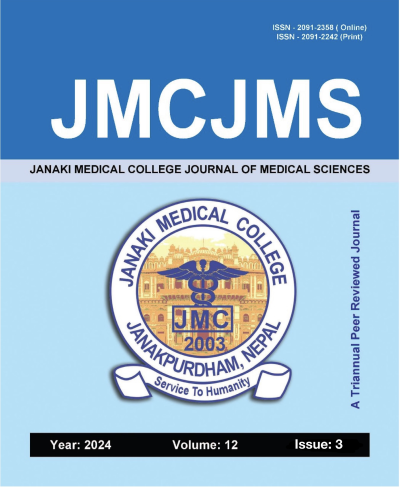Depression and anxiety during COVID-19 pandemic in remote community of Western Nepal
DOI:
https://doi.org/10.3126/jmcjms.v12i03.73962Keywords:
Anxiety, COVID-19, Depression, Patient Health Questionnaire, Rural populationAbstract
Background and objectives: Depression and anxiety are significant mental health concerns, particularly in low-resource settings. This study aimed to screen depression and anxiety using ultra-short questionnaires in a remote rural population of Nepal.
Materials and Methods: A cross-sectional study was conducted among 218 participants of Guthichaur Rural Municipality, Nepal. Depression and anxiety were assessed using patient health questionnaire – 2 and generalised anxiety disorder questionnaire – 2 , respectively. Data were analysed using descriptive statistics, Chi-square tests, and Pearson correlation.
Results: The mean age of participants was 40.39 ± 17.64 years, with 65.14% being male. Depression (PHQ-2 ≥3) was identified in 9.63%, and anxiety (GAD-2 ≥3) in 12.84% of participants, with 5.50% showing both conditions. No significant differences were found between genders or COVID-19 status. A mild positive correlation was observed between age and both scores.
Conclusions: Depression and anxiety were prevalent in this rural community, highlighting the utility of ultra-short questionnaires for mental health screening in low-resource settings. Community-based mental health programs and early interventions are recommended to address these conditions effectively.
Downloads
Downloads
Published
How to Cite
Issue
Section
License
© JMCJMS, JMC, Janakpur, Nepal




